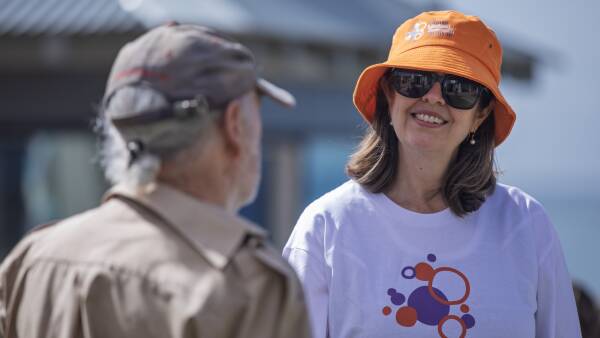
Dementia cases in the Hunter region of Australia are expected to increase by more than 70 percent by 2054, prompting researchers to call for enhanced investment in dementia research. Currently, nearly 13,000 people in the Hunter are living with dementia, a number projected to rise to over 22,500 in the coming decades.
Frances Kay, CEO of the Hunter Medical Research Institute (HMRI), highlighted that the incidence of dementia in the Hunter is notably higher than in other regions of the state. “We are about the second in the state for rates of dementia, and that’s quite frightening,” she stated. Kay pointed out that the region has a significant proportion of individuals aged 65 years and over, contributing to the increasing prevalence of the disease.
According to Dementia Australia, Lake Macquarie ranks as the fourth-highest local government area for dementia rates in New South Wales, with 4,755 cases reported as of 2025. In Newcastle, 3,004 cases have been documented. The disease is now recognized as the leading cause of death for Australians, as stated by the Australian Institute for Health and Welfare.
To address this growing crisis, HMRI is advocating for improved access to early detection and clinical trials in the Hunter region. Kay expressed a strong desire to implement region-wide screening initiatives to identify symptoms early. “We also want to create more pathways to care, so that means unclogging some of our emergency departments, so when people actually need it, it’s there,” she explained.
In addition to early detection efforts, HMRI is working to bring more clinical trials to the area. Kay emphasized that these trials provide patients with first access to the latest available treatments. “For us in regional areas, it would get us access to that care quicker, rather than having to wait for it all to happen in the capital city,” she noted.
To further this goal, HMRI aims to secure additional funding to facilitate outreach initiatives that would allow a team to travel by bus to deliver clinical trials and treatments to rural communities. Currently, the institute is conducting several dementia-related clinical trials and is awaiting ethics approvals for additional studies.
Dementia is particularly impactful in the Hunter New England Health District, where it is the leading cause of death among women. Kay mentioned that HMRI is collaborating with neuroscientists to explore the reasons behind the higher diagnosis rates of dementia in women compared to men.
Community engagement is also a priority for HMRI. On October 24, 2023, the institute will host a “Sip and Science” event, providing an opportunity for the public to learn more about ongoing dementia research in the Hunter. This outreach event aims to connect scientists and researchers with community members to disseminate information about clinical trials and advancements in treatment. The event will take place from 07:00 to 10:00 at the Dixon Park Surf Club.
As dementia rates continue to rise, the call for increased research funding and community engagement becomes ever more critical. The Hunter region stands at a pivotal moment to address this significant public health issue, and the efforts of HMRI and its partners could play a key role in shaping the future of dementia care and research in the area.






